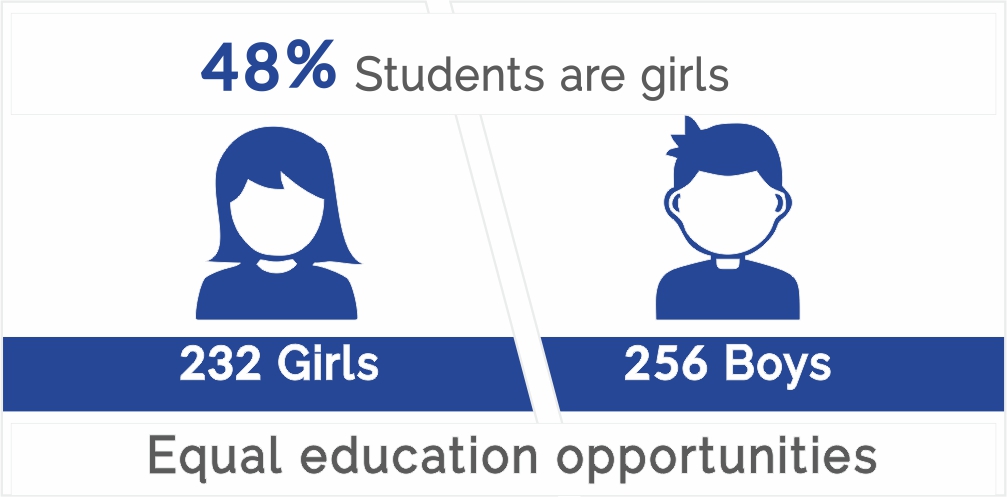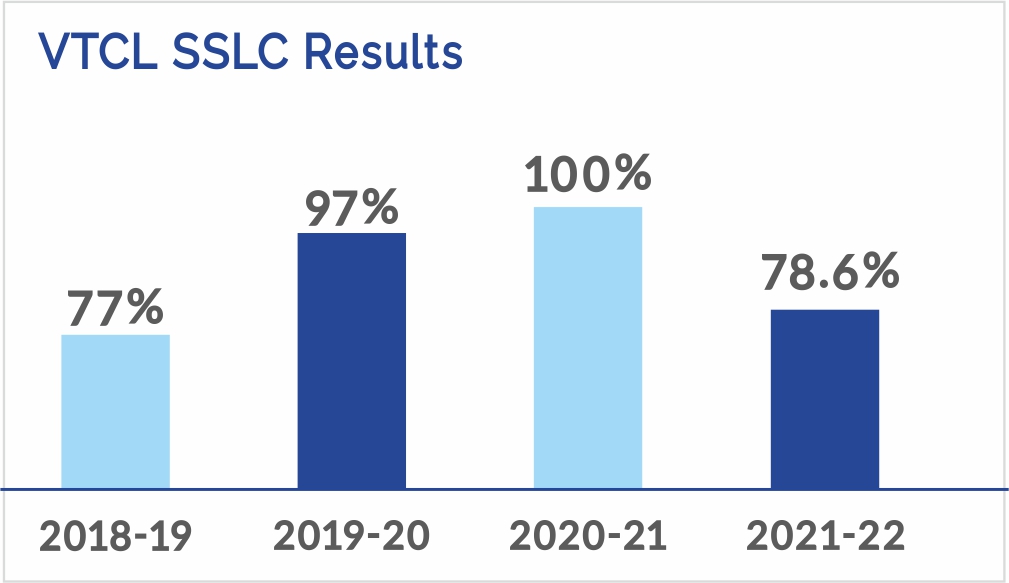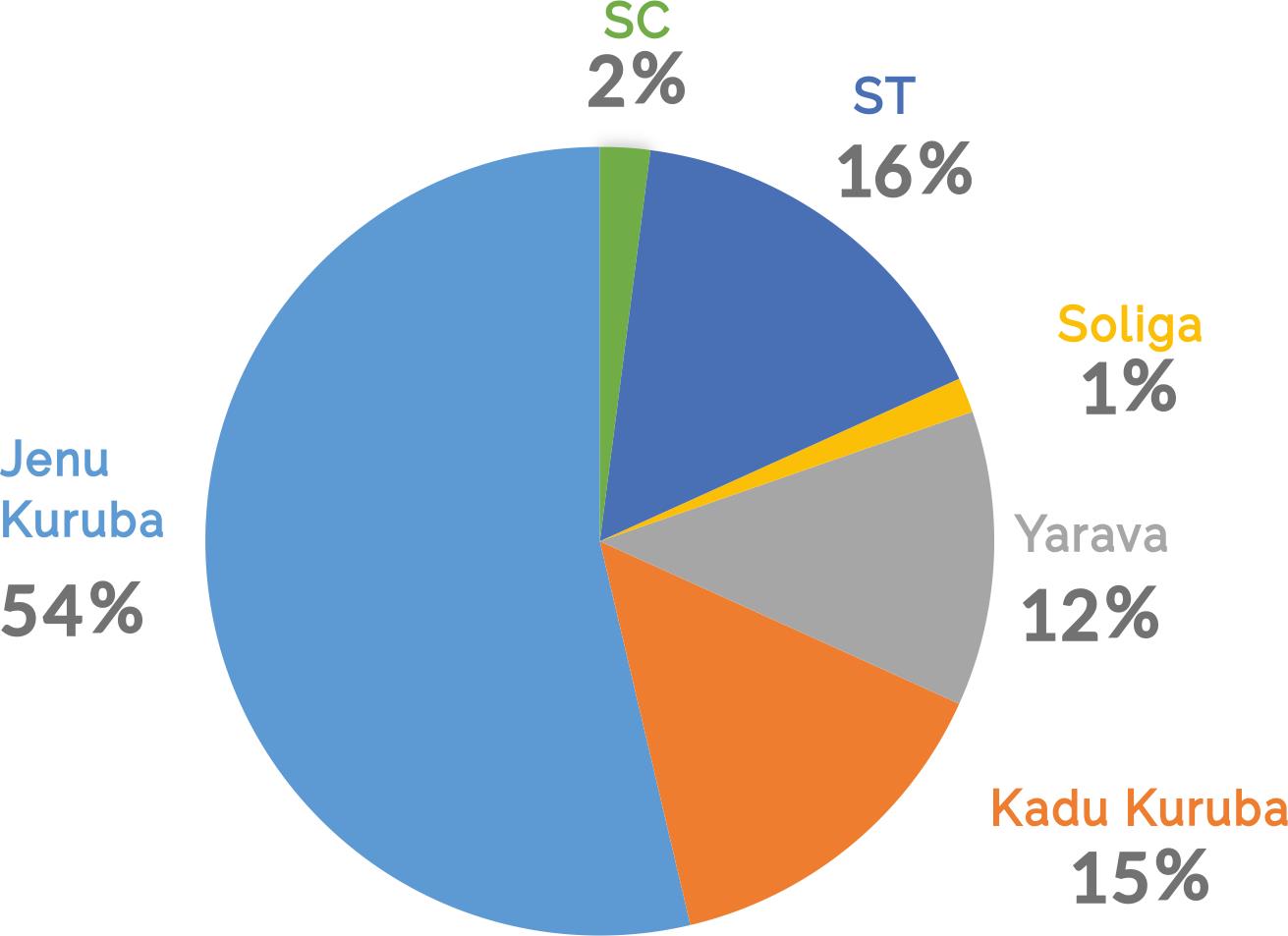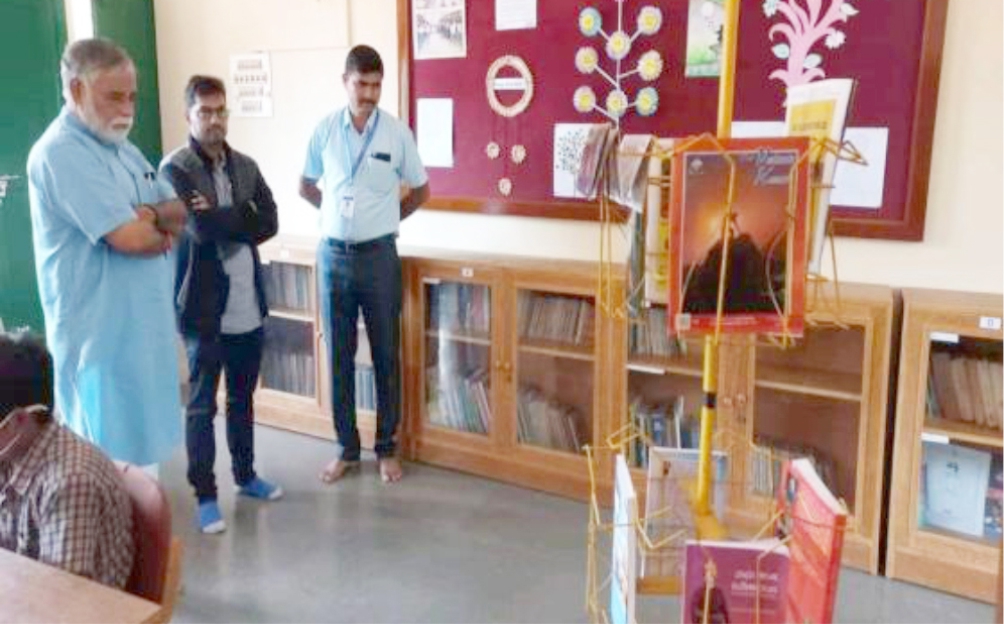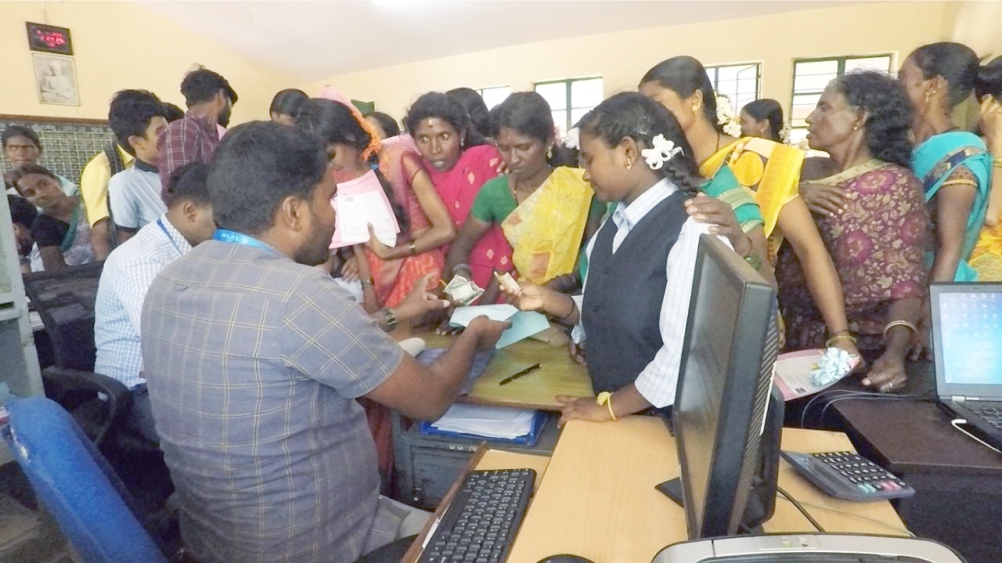Dreamers today, Doers tomorrow!
Back to School
VTCL
Making Education Equitable & Accessible for 500+ Students from Indigenous Tribal Communities
VTCL Annual Report 2021-22
Viveka Tribal Centre for Learning
Viveka Tribal Center for Learning (VTCL) started as an informal school in 1988 with 28 students in an empty cowshed (read Dr R Balasubramaiam, SVYM’s founder’s blog about how VTCL started). The school was recognised by the Govt. in 1990. Located in a remote tribal village in Hosahalli in H D Kote and abutting Bandipur National Park on side and only separated by a trench and electric fence, the school today provides education to 500+ students.
Over the last 33 years, the tribal school has evolved from providing access to education (focusing on admission, nutrition, attendance & retention) to providing ‘holistic’ education by focusing on building the human capital of the students through overall development of physical, intellectual, emotional and spiritual aspects.
VTCL has 45% girls and a majority of the students belong to the Scheduled Tribes esp. the Indigenous Tribal groups Jenu Kuruba,, Kadu Kuruba, Yarava and Soliga. Jenu Kuruba Tribe have been given the status of Particularly Vulnerable Tribal Group (PVTG) by the Govt. of India.
The students come from about 60 tribal villages (haadis) of H D Kote and neighboring taluks. VTCL is a state-board school and also the only high school of the gram panchayath of N Begur. This school is fully residential from grade 6 to grade 10 (over 315 students).
In terms of the impact created over 3 decades, the residential school has seen a steady increase in admissions, 90% parent engagement, 100% continuing higher education after SSLC and delayed marital age in girl students pushed to 18 years and beyond. VTCL has been aligned with NEP 2020 since 2011.
The joyful & familiar learning environment in open classrooms (Kuteera) is both culturally appropriate and contextually relevant. Introduction to basic technology (IBT), agriculture, arts and sports are integrated into the learning curriculum.
Balanced nutritious meals derived from native produce and eating habits ensure physical development of the children studying in the school. The school as a huge garden where vegetables, fruits and even coffee is planted, the produce is consumed by VTCL children and staff along with their families.
Plan a visit to VTCL – fill our Visitor’s Form
Key Impact
500+
Students from Indigenous Tribal Communities receive education
45%
Girl students
100%
SSLC students continuing higher education in diverse streams
76%
Students passed SSLC Karnataka State Board Examination
INR 800
Yearly education fee from parents encouraged towards equal partnership in education of their children.
INR 56,000
Annual cost of residential education for 1 student
Developing Human Capital through Education
All VTCL students are continuing education after SSLC in 2021-22

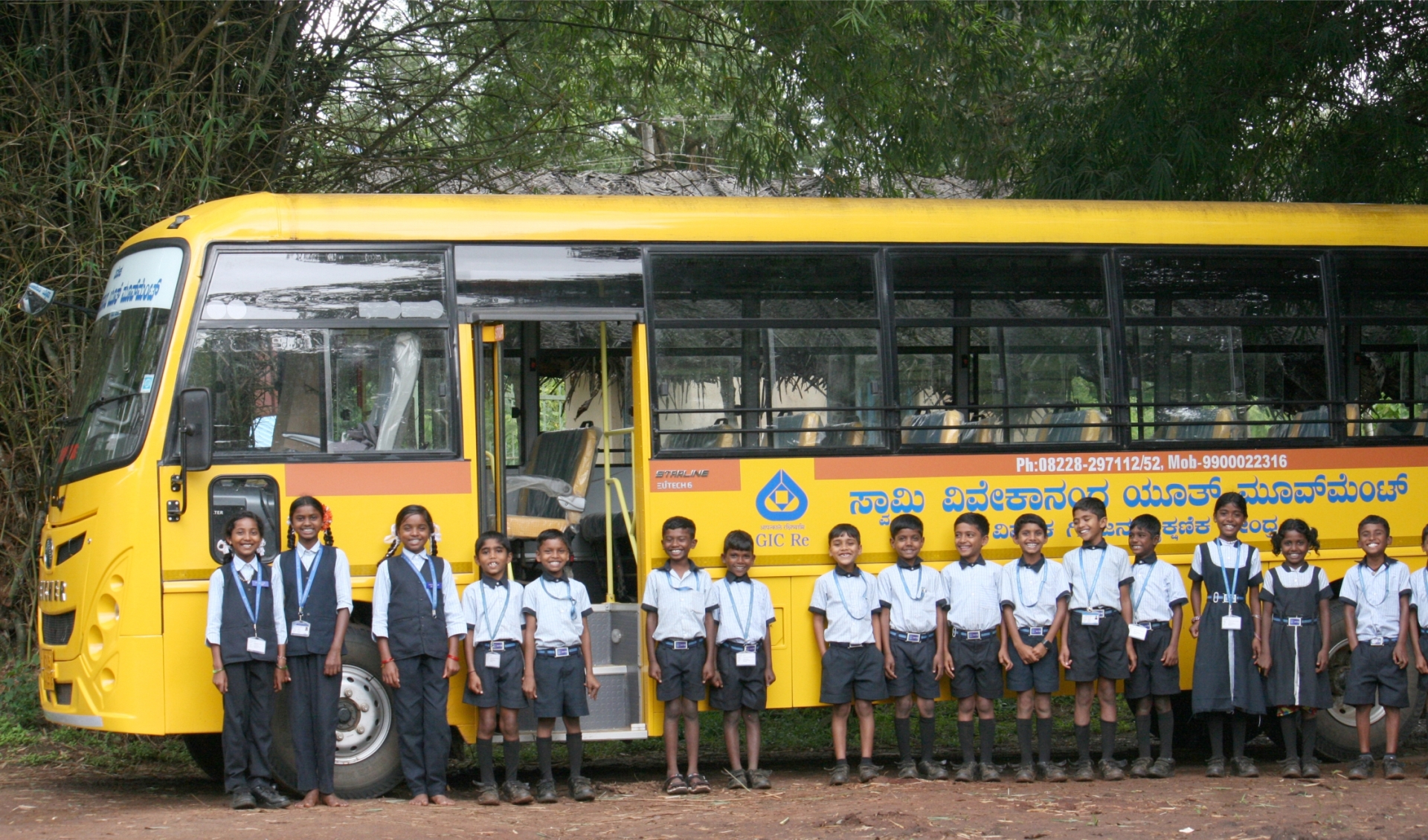
Towards Making VTCL a NEP Demonstration School
Karnataka’s Education Minister Sri B C Nagesh visited VTCL campus in 2021. He interacted with the students & the teaching staff. Addressing the students, he stated that VTCL is a model school that imparts education among tribal students & imparts values & life skills.
Equal Partnership in Education
The conglomerate of parents from different tribes eagerly wait their turn to extend an amount of INR 800. A contribution encouraged by VTCL administration to no substantial economic benefit. But something greater in the form of equal partnership in education of their children. A move to ensure dignity in development by seeing the tribal parents not as beneficiaries, but customers, entitled to quality on a professional level.
